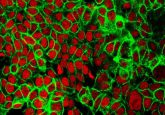Genetic test could identify individuals at high-risk of anal cancer

A novel genetic test may help identify individuals at high-risk of anal cancer, according to a study published recently in Oncotarget and conducted by researchers from Queen Mary University London (UK).
Current diagnostic options for anal cancer are expensive, complex, generate subjective results and are uncomfortable for the patient.
Lead researcher Attila Lorincz from Queen Mary University London (UK) explained: “The widespread over-treatment of anal precancerous lesions is necessary today because we don’t know which ones will progress to cancer. But this creates a large burden on anoscopy clinics in the UK and the procedures can be detrimental to people’s quality of life. Many people are undergoing these procedures unnecessarily, so what we really need is precision medicine to identify those who do need treatment.”
In this study, funded by Cancer Research UK, Queen Mary University researchers studied the patterns of DNA methylation of human papillomavirus (HPV) and tumor suppressor gene EPB41L3 in 148 anal and perianal biopsies. The most prevalent HPV type was HPV16.
The team demonstrated that the methylation of HPV16 and EPB41L3 shows highly significant association with increasing severity of anal intraepithelial neoplasia and cancer, indicating that they may be useful biomarkers for anal disease.
Lorincz commented on the significance of the results: “We thought this would require a complicated genomic signature involving hundreds of genes, so we were surprised that we could get such an accurate prediction from just two biomarker genes. That’s important because the expected cost of the test will be fairly low.”
“Now that we can identify those at risk, and conversely, those not at risk, we hope to see a big improvement, by making sure that anoscopies and laser or chemical surgery are only given to those who need it.”
The results also suggest that epigenetic testing could prove to be an accurate and thorough method to indicate whether a patient’s lesions will likely progress to anal cancer. The researchers state that epigenetic methylation biomarkers could lead to a completely new approach to diagnostics and drug therapy.
“These could be the early stages of a discovery of a universal set of biomarkers for any cancer. And there may be implications on therapies, as there are new techniques where the epigenetic pathway can be targeted by drugs. This is going to be the hot new area going forward in the next 15 years, so people need to be paying attention to this space.”
The researchers caution that the their findings need to be confirmed in a much larger study across the UK, and repeated utilizing swab samples rather than the biopsies which were used in the current study.
Sources:
Lorincz AT, Nathan M, Reuter C et al. Methylation of HPV and a tumor suppressor gene reveals anal cancer and precursor lesions Oncotarget doi: 10.18632/oncotarget.17984 (2017); Eureka alert press release



